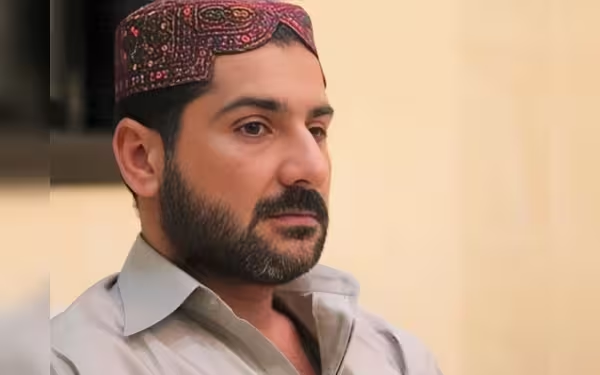Thursday, November 7, 2024 07:27 PM
Uzair Baloch Acquitted Again in Pakistan
- Uzair Baloch acquitted due to insufficient evidence.
- Concerns raised over judicial effectiveness in organized crime cases.
- Public trust in legal system jeopardized by high-profile acquittals.
 Image Credits: tribune.com.pk
Image Credits: tribune.com.pkUzair Baloch, a notorious criminal, has been acquitted again, raising concerns about the effectiveness of Pakistan's judicial system.
Uzair Jan Baloch, a notorious figure in Pakistan's criminal landscape, has been acquitted in yet another case, raising eyebrows and concerns among the public and law enforcement agencies alike. This recent decision comes from a special anti-terrorism court, which found insufficient evidence to support the charges against Baloch and two other suspects. The case in question involved the kidnapping and murder of four individuals, including a police officer, a crime that shocked the community and highlighted the ongoing issues of violence and lawlessness in certain regions of the country.
The court's ruling, as reported, indicates that prosecutors were unable to present compelling evidence to substantiate the claims against Baloch, Riaz Sarwar, and Sher Afsar. This lack of evidence ultimately led to their acquittal, a decision that has sparked discussions about the effectiveness of the judicial system in handling cases related to organized crime and terrorism. Many are left wondering how a figure like Uzair Baloch, who has been linked to various criminal activities, can walk free due to what appears to be a failure in the prosecution's case.
Uzair Baloch has long been associated with a gang that has been involved in numerous violent crimes, including extortion, murder, and drug trafficking. His acquittal raises significant questions about the ability of law enforcement to gather sufficient evidence and build strong cases against high-profile criminals. It also reflects the broader challenges faced by the justice system in Pakistan, where many cases remain unresolved or are dismissed due to lack of evidence.
As the public digests this news, it is essential to consider the implications of such acquittals on society. The perception of justice being served is crucial for maintaining public trust in the legal system. When individuals like Uzair Baloch are acquitted, it can lead to a sense of hopelessness among victims and their families, who seek justice for the crimes committed against them. Furthermore, it may embolden other criminals, knowing that the chances of facing consequences for their actions are slim.
While the legal system must adhere to the principle of "innocent until proven guilty," the acquittal of Uzair Baloch serves as a stark reminder of the challenges that lie ahead in the fight against crime and terrorism in Pakistan. It is imperative for authorities to strengthen their investigative processes and ensure that justice is not only pursued but achieved, to restore faith in the system and protect the rights of all citizens.













